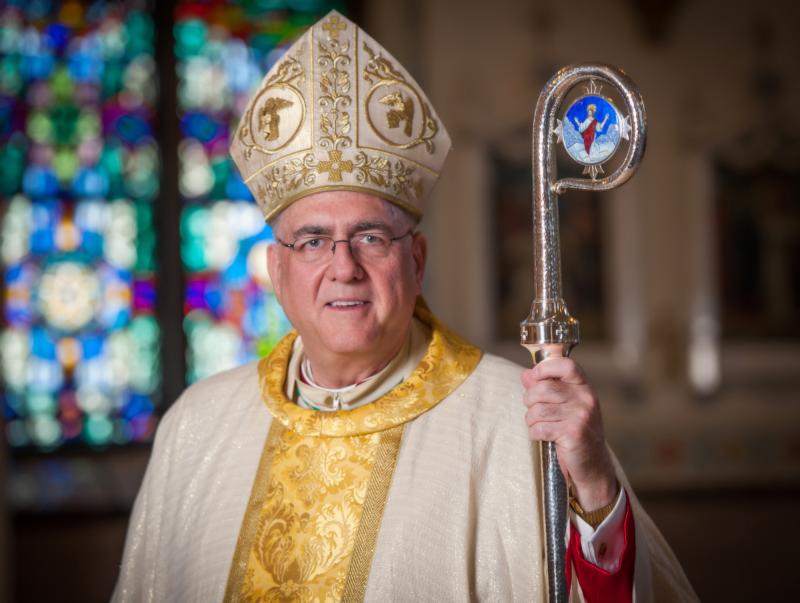
by Archbishop Joseph F. Naumann
We are still at the beginning of Lent. Many of us, perhaps, are not thrilled by the commencement of this liturgical season.
Oftentimes, we associate Lent with giving up things that, quite frankly, we enjoy. We often think of Lent as a time of deprivation.
However, I want to challenge that mindset and suggest we reconsider Lent as a season where less is indeed more.
The church invites us to give up, at least for a time, some things, but it is to make space in our hearts for something better, something more.
During this season, the church actually requires very modest corporate fasts. The norms for Catholics in the United States regarding fast and abstinence during the Lenten season requires that on Ash Wednesday and Good Friday we fast and abstain from meat.
The obligation of abstinence applies to everyone 14 years of age or older and the requirement for fasting is applicable for those 18 through 59. Fasting allows for one full meal with two smaller meals with no eating between meals. Catholics in the United States are also required to abstain from meat on all Fridays of Lent.
The norm counsels that no Catholic Christian should lightly excuse himself or herself from these penances.
The norm also states that for other weekdays of Lent, a self-imposed fast is strongly recommended. This self-imposed fast could be the same as the designated fast days or could be targeted to refraining from particular foods or types of entertainment.
With regard to this individualized fast, it is good to give up something that will be difficult for us. For me, refraining from eating Brussels sprouts would not be an appropriate penance; not eating M&M’s, Kit Kats — or chocolate in general — is another story.
Why fast? Part of the reason for fasting is to identify what are the foods or activities from which we seek comfort. Fasting frees us from becoming dependent on certain physical comforts.
Foods and activities can enslave us to the degree that we think we need them for our happiness. Lent empowers us to gain more freedom from dependency on material things that are not capable of satisfying the deepest longings of our hearts. Lent is a time when we can become freer.
The norms for Lenten observance for U.S. Catholics also state: “Let us witness to our love and imitation of Christ by special solicitude for the sick, the poor, the underprivileged, the imprisoned, the bedridden, the discouraged, the stranger, the lonely and persons of other colors, nationalities or backgrounds than our own.”
Lent is also a time when we allow ourselves to become more aware of the needs of others.
We should strive to love better those that are nearest to us — e.g., family, friends, neighbors, fellow parishioners and co-workers.
At the beginning of Lent, it is good to pray, asking the Lord to reveal to us those in our lives for whom he is calling us to give more attention, time and love.
The church also presents us with opportunities to share our resources with others near and far. Lent is a great time to make a donation to Catholic Charities and/or to become a volunteer. We can also give to Catholic Relief Services in their efforts to bring Christ’s love to those in other parts of the world. Lent is a time for us to love more.
Finally, Lent is a time for us to spend more time in prayer, in conversation with God. Participating in daily Mass, Stations of the Cross, retreats and eucharistic adoration are just some ways that we can expand our time with God.
Emptying our lives of some unnecessary activities like television, computer games, movies, etc., can open up more time for personal prayer.
Lent really is a time for more — more freedom, more love and more prayer!

